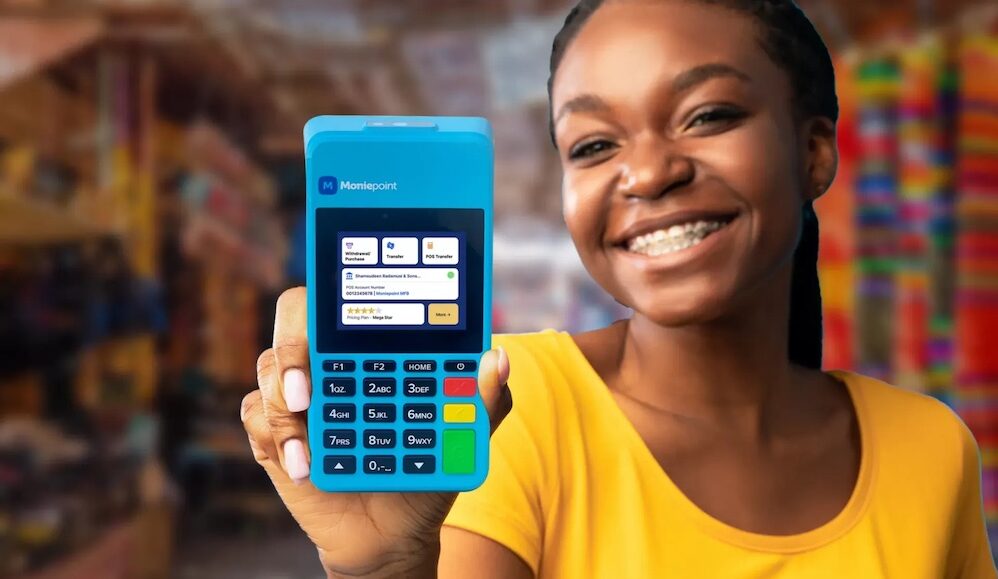Moniepoint’s Bold Step Towards a Commercial Banking License: A Fintech Revolution in Nigeria
In a pivotal development for Nigeria’s fintech landscape, Moniepoint, the nine-year-old fintech unicorn, is pursuing a commercial banking license from the Central Bank of Nigeria (CBN). If successful, Moniepoint would become the first Nigerian fintech to transition into full-fledged commercial banking, a move that signals its ambition to reshape the nation’s financial ecosystem.
The Nigerian Fintech Ecosystem: A Breeding Ground for Innovation
Nigeria, Africa’s largest economy, has emerged as a hub for fintech innovation, fuelled by a youthful population, high smartphone penetration, and a largely underbanked population. Startups like Moniepoint have capitalised on these dynamics to build robust digital banking platforms, leveraging technology to address the limitations of traditional banks.
Moniepoint, originally founded as TeamApt in 2015, is best known for its agency banking network, which processes over $17 billion monthly through a vast network of agents. With its services, Moniepoint has bridged the financial gap for millions of Nigerians who lack access to traditional banking infrastructure.
The company’s recent $110 million Series C funding round, led by Development Partners International, underscores investor confidence in its growth trajectory. However, Moniepoint’s latest ambition—securing a commercial banking license—marks a significant departure from its fintech peers, positioning it as a potential disruptor in Nigeria’s banking industry.

Why a Commercial Banking License Matters
Currently operating under a microfinance bank license, Moniepoint faces regulatory restrictions that limit its geographical and product scope. A commercial banking license would enable it to expand its offerings significantly, encompassing international transactions, treasury operations, and large-scale corporate banking. These high-margin services represent stable revenue streams that could enhance the company’s profitability.
The move also aligns with global fintech trends, where companies like Nubank in Latin America have transitioned to commercial banking to deepen market penetration. For Moniepoint, this would mean not only increased revenue potential but also the ability to establish physical branches—an essential step in a country where trust in digital-only platforms remains low.
Navigating Regulatory Hurdles
Securing a commercial banking license in Nigeria is no small feat. At a minimum, it requires a $30 million capital base for a regional license and adherence to stringent regulatory requirements, including physical infrastructure like banking halls and strong rooms. Moniepoint has reportedly bolstered its compliance team, hiring specialists in fraud monitoring and regulatory affairs to navigate the CBN’s rigorous vetting process.
While the process could take up to a year, Moniepoint’s preparation signals its readiness to meet these challenges head-on. The hiring of Bayo Olujobi, a seasoned financial expert from Stanbic IBTC, as Chief Financial Officer (CFO) further underscores its commitment to compliance and operational excellence.
Implications for Nigeria’s Banking Sector
Nigeria’s banking sector, dominated by 24 commercial banks, is ripe for disruption. Despite serving millions of customers, the country’s largest banks often face criticism for inefficiency and poor customer service. Moniepoint’s entry could inject much-needed competition, forcing incumbents to innovate and improve service delivery.
Moreover, Moniepoint’s focus on retail banking positions it uniquely within a landscape where corporate banking dominates. For instance, Access Bank, Nigeria’s largest bank by assets, derives the majority of its profits from corporate deposits rather than retail services. Moniepoint’s strategy of targeting underserved populations aligns with its fintech roots, ensuring it retains its core mission of financial inclusion while expanding into more profitable banking segments.
Challenges and Opportunities Ahead
While the potential benefits are substantial, Moniepoint’s transition to commercial banking will not be without challenges. The fintech must contend with increased regulatory scrutiny and operational complexities, from managing foreign currency risks to navigating Nigeria’s volatile economic environment. Additionally, the establishment of physical branches—a regulatory requirement—may strain its agile, technology-driven model.
However, the opportunities outweigh the risks. By offering a seamless blend of digital and traditional banking services, Moniepoint could set a new standard for customer-centric banking in Nigeria. Its ability to leverage data analytics and artificial intelligence for personalised financial solutions could further differentiate it from traditional banks, which often lack the technological sophistication of fintech firms.
The Bigger Picture: What This Means for Nigerian Fintech
Moniepoint’s move is a watershed moment for Nigeria’s fintech ecosystem. It reflects the sector’s maturation, as startups evolve from niche service providers into comprehensive financial institutions. This shift also highlights the increasing convergence of fintech and traditional banking, blurring the lines between the two industries.
For other fintech players, Moniepoint’s strategy serves as a blueprint for scaling operations and navigating regulatory landscapes. It also signals to global investors that Nigerian fintechs are not only viable but also capable of challenging established banking giants.
Conclusion
Moniepoint’s pursuit of a commercial banking license is not merely a business decision; it is a bold statement about the future of financial services in Nigeria. As the fintech navigates regulatory hurdles and operational challenges, its success could redefine the banking landscape, offering a more inclusive, efficient, and customer-focused alternative to traditional banks.
In a country where financial inclusion remains a pressing challenge, Moniepoint’s journey is a testament to the transformative power of innovation. Whether it ultimately secures the license or not, its ambition will undoubtedly inspire other fintechs to dream bigger and aim higher in reshaping Africa’s financial ecosystem.

















